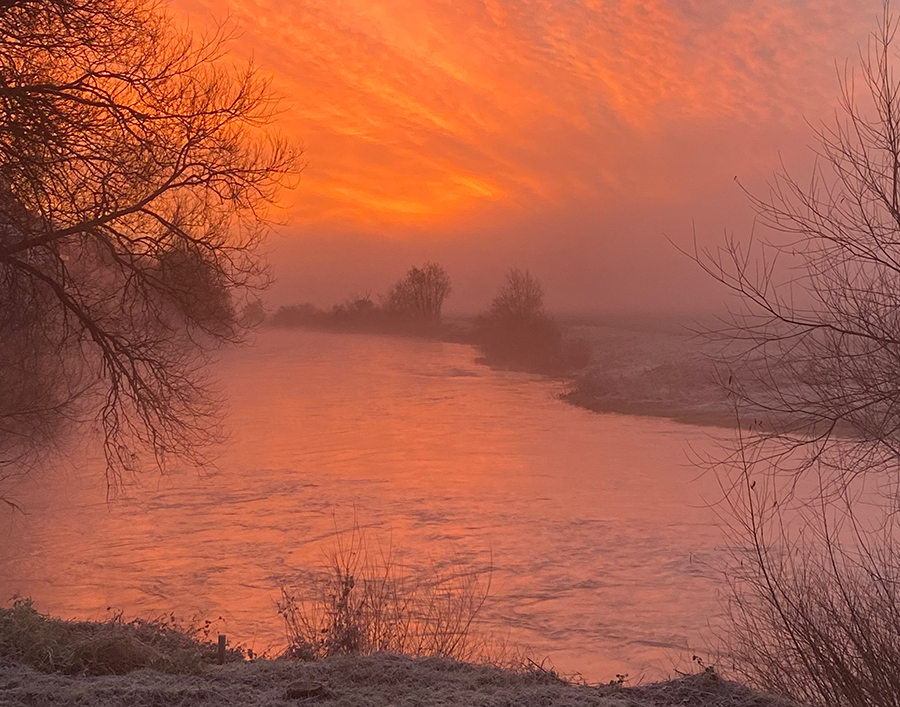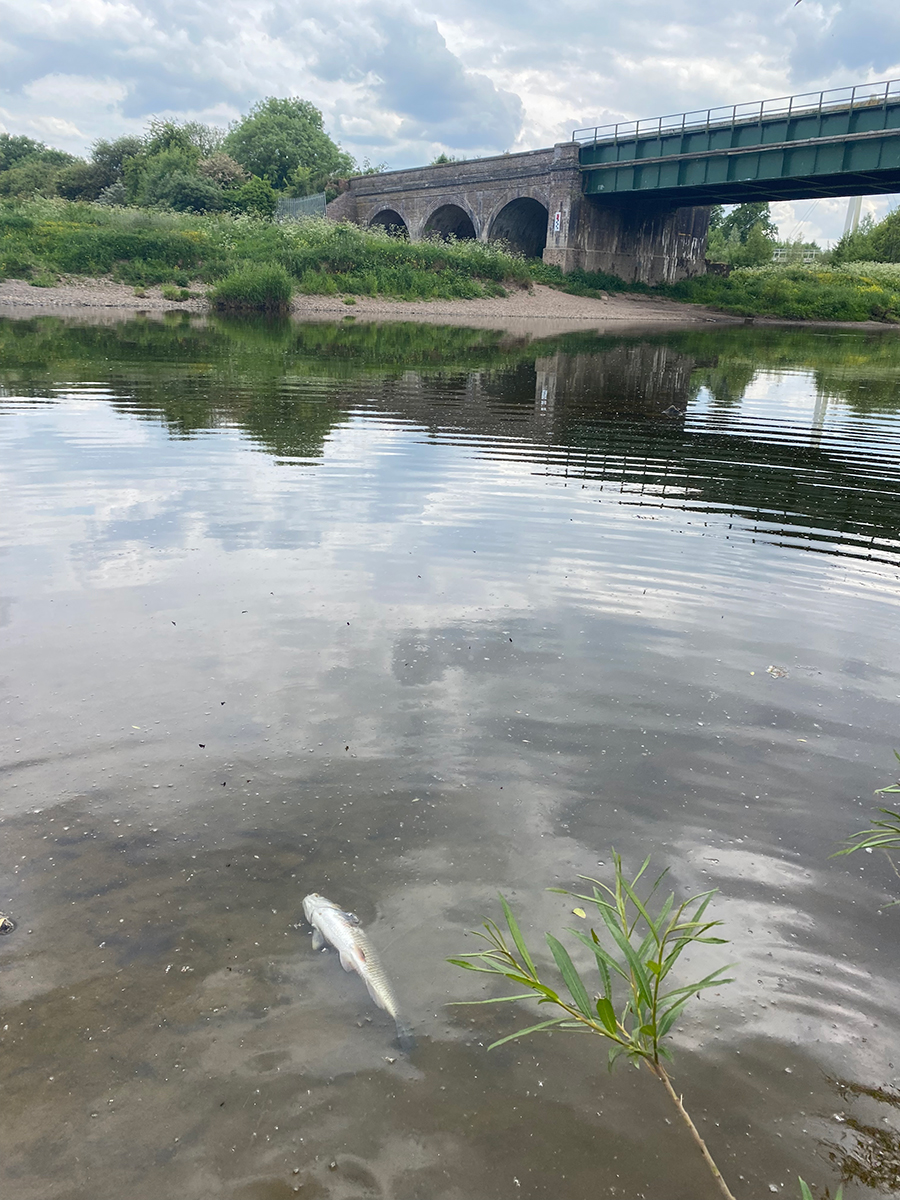
Mental health in catastrophies and emergencies
Chicken poo smoothie, anyone?
I’ve been thinking a lot this week about the river Wye, whom I have the huge privilege of having as my close neighbour. The largest ever UK legal case challenging environmental destruction was filed at the High Court on Wednesday, bringing a group action by a collective of around 4000 individuals whose lives have been severely impacted by the pollution entering this beautiful, historic river and her tributaries. Twenty-five percent of UK chicken is produced within the Wye catchment. That’s around 23 million chickens. The manure from these chickens is spread on fields as fertiliser. It is more than the ground can absorb, and the enormous amount of excess runs off into the rivers. The high levels of phosphorus in chicken manure causes algae blooms, which stop oxygen and light getting to all the living things in the rivers. My lovely, powerful, ancient, majestic neighbour is being systematically choked to death with chicken poo.
I grew up playing and swimming in the rivers Wye and Lugg. As a child I remember the feeling of being completely submerged in this vibrant, vital ecosystem. Everything was alive. Insects, plants, fish, birds, everything moving. You could open your eyes under the water and see the whole drama- big fish chasing little ones, the water jostling over the stones, weeds bending to the flow of the current. My favourite thing was to open my eyes with them half in and half out of the water. Then you were between two worlds, could see the insects skating on the water’s skin, their feet not quite poking through; dragonflies landing on the water crowfoot (the beds of green weed with white flowers for which the Wye is so famous); the serene elegance of the swan’s glide above at odds with its busy paddling underneath. It was not unusual to see huge salmon leap clear out of the water and make a complete 360 degree flip. The river now is a different world altogether. It is a post-apocalyptic world. Most of the insects are gone. This year, for the first time, I did not see a single fish jump, let alone a salmon. The birds are fewer and hungry, pacing the banks searching and searching for food that is not there. The water crowfoot bed that was at the bottom of my garden has completely disappeared. All of the stones are covered in brown sludge and the water is murky and slimy. I wouldn’t put my eyes anywhere near it.

The pollution of our waterways is ecologically devastating, societally destructive and personally heartbreaking. In my region, a catastrophic ecological emergency is playing out right in front of us. We are fighting for a dying river, feeling immense grief for what has already been lost, and disempowered by an imperfect legal system that grants greater rights and protections to the multi-billion-dollar-profit making corporation that is causing the destruction than to the immensely important natural entity of the river. Humans are water-based creatures; we rely on clean waterways in order to survive and thrive. Until we protect the inherent rights of our rivers to be free from pollution, to flow freely and to sustain life, we are all losers.
People’s mental health is being impacted on a profound level, consciously and subconsciously, by the experience of ecological destruction. We need a paradigm shift to where everyone is able to experience that nature is not something other, to be controlled or commodified, but that we are it. In yogic terms this is called prakrti- nature- the substance of all matter. Yogic practices are explorations of the experience of being alive as vibrating prakrti (nature). They can help us to realise in a very practical way that we are part of the same network as everything else that is alive, and that if any part of the network is out of kilter it affects all the other parts of it. This is why rta, alignment, is such a key principle in Iyengar yoga. It is less to do with aligning your heel with your instep than with aligning all the vibrating particles of your body-mind with all the vibrating particles of the river, and the mountain, and the other people and so on and so on. And then any concept of ‘other’ dissolves, and choking the river with chicken poo makes as much sense as drinking a chicken poo smoothie.
